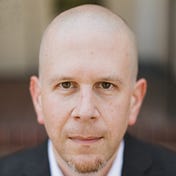Positive Intent: Five Principles to Improve Your Life and Leadership
Positive Intent: Five Principles to Improve Your Life and Leadership
Positive Intent isn’t about upgrading your skills. It isn’t about motivation. This is not a life hack; it’s a new life.
